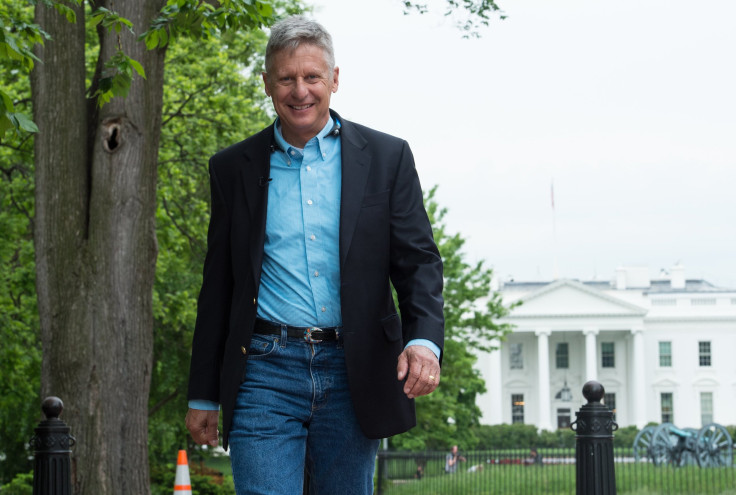Third Party: Gary Johnson Says Libertarians Are The Alternative To Trump, Clinton

Libertarian presidential nominee Gary Johnson said Sunday those looking for an alternative to Republican Donald Trump and Democrat Hillary Clinton need look no further. Both Trump and Clinton have high negative ratings among voters, recent polls indicate, and conservatives unhappy with Trump’s ascendance have been trying to field a third-party candidate.
On NBC’s “Meet the Press,” Johnson said he believes most Americans feel the way he does: that they are fiscally conservative and socially liberal, and recognize U.S. military intervention has made a number of bad situations worse.
Johnson, a former GOP governor of Colorado, was selected as the Libertarian standard-bearer at last week’s Orlando, Florida, convention, with former Massachusetts Gov. William Weld as his running mate. Johnson denied his candidacy would serve as a spoiler for the Republicans, handing the presidency to Clinton. Johnson said he thinks he will draw votes from both major parties but acknowledged that unless he starts polling higher and earns a spot on the presidential debate stage, he has little chance of making a major impact.
“All this talk about third party, I’m it. I’m the only candidate on the ballot in all 50 states,” he said
Johnson said he stands for smaller government and would eliminate a number of cabinet departments to reduce the size of government and taxes.
“Government tries to do too much and tax too much,” Johnson said. “We should provide a safety net … [but] we’ve gone way over the line defining those in need.”
On defense, Johnson denied Libertarians are isolationists. He said if the United States is attacked, “we’re going to attack back,” but in other situations he would use “diplomacy to the hilt.”
Johnson said the United States has treaties with 69 countries to defend their borders that have not been authorized by Congress. “Let’s involve Congress,” he said.
“I don’t want to sit by and watch humanitarian crises go down,” he said. “If we are going to make a difference, count on me to step up.”
Johnson’s position on military intervention echoed that of Democratic presidential hopeful Sen. Bernie Sanders of Vermont, who said he worries Clinton would be too eager to use the armed forces, citing Clinton’s support for the airstrikes on Libya and her views on Syrian intervention.
“Our job is to think about what happens the day after these people are removed [from power],” Sanders said, adding there are “ways to get them out of power without causing mass instability and deaths.
© Copyright IBTimes 2024. All rights reserved.












